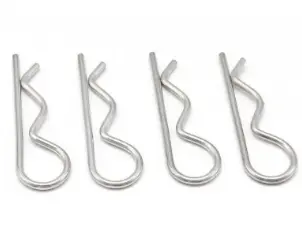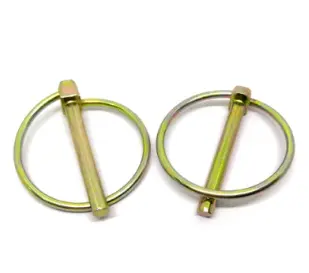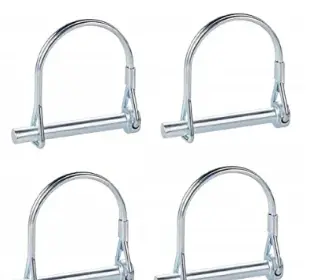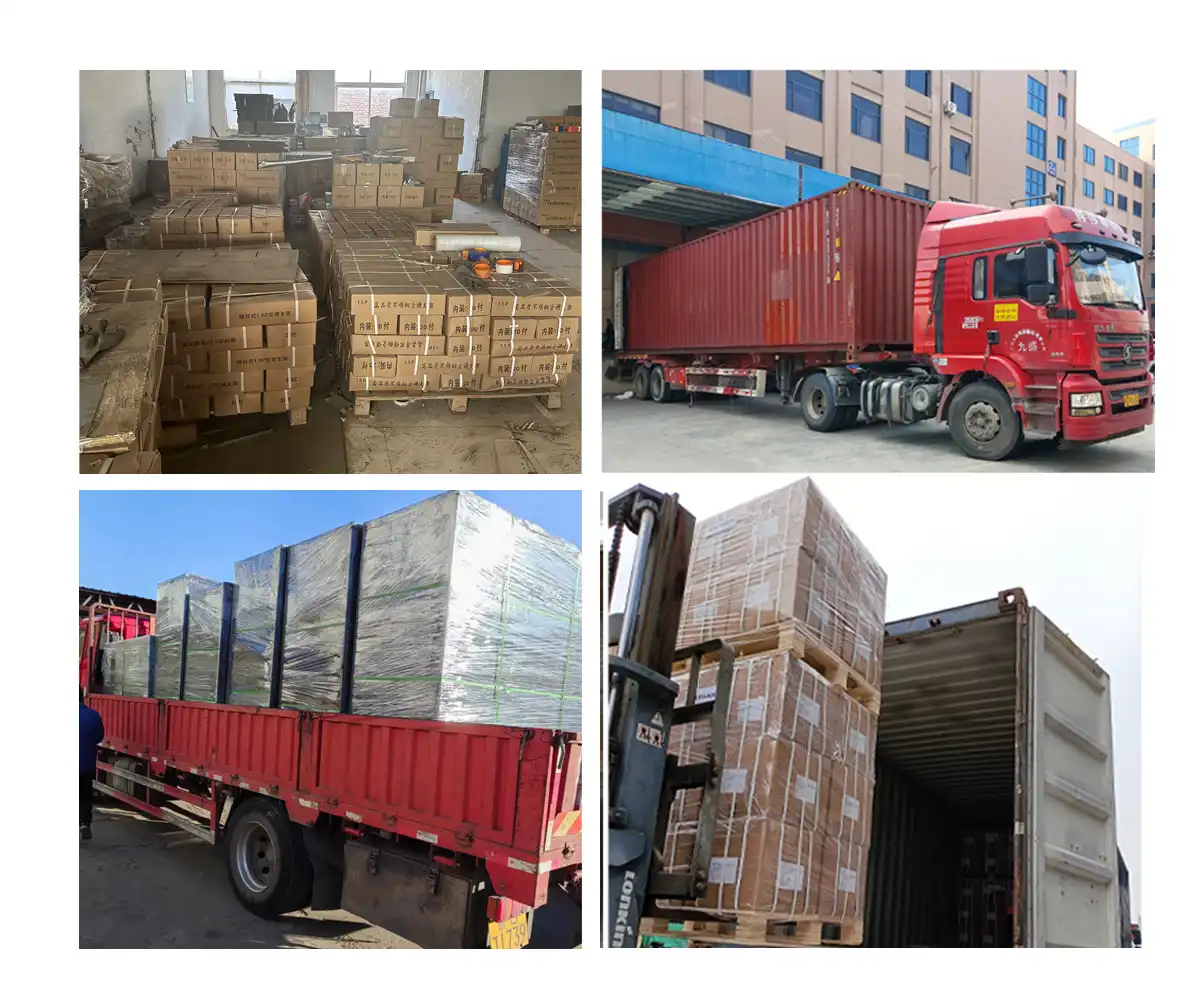Hitch Pin Lock vs Coupler Lock: Pros, Cons, and Best Picks for Your Trailer
2025-09-25 14:41:57
Picture this: you've invested thousands in a quality trailer for your weekend adventures, only to discover it missing from your driveway one morning. This nightmare scenario affects thousands of trailer owners annually, highlighting the critical importance of choosing the right security solution. When it comes to protecting your valuable investment, understanding the differences between a locking hitch pin and coupler lock systems becomes essential for any responsible trailer owner seeking comprehensive security protection.

Understanding Locking Hitch Pin Systems
Locking hitch pin mechanisms serve as the primary connection point between your towing vehicle and trailer, functioning as both a mechanical fastener and security device. These specialized pins replace standard hitch pins with advanced locking mechanisms that prevent unauthorized removal of your trailer from the towing vehicle. The locking hitch pin creates a secure barrier that deters opportunistic thieves while maintaining the structural integrity required for safe towing operations. Modern locking hitch pin designs incorporate hardened steel construction with corrosion-resistant coatings, ensuring long-lasting performance in various weather conditions. The typical locking hitch pin features a spring-loaded mechanism activated by a specialized key, creating multiple contact points that distribute stress evenly across the pin structure. This engineering approach maximizes both security and reliability, making the locking hitch pin an essential component for professional towing applications and recreational use alike.
-
Heavy-Duty Locking Hitch Pin Construction
Professional-grade locking hitch pin units utilize high-strength steel materials such as Q235B steel, providing exceptional durability under demanding conditions. The manufacturing process involves precision machining and heat treatment to achieve optimal hardness levels while maintaining flexibility under dynamic loads. Quality manufacturers apply zinc coating or powder coating finishes to enhance rust resistance, ensuring the locking hitch pin maintains functionality even after extended exposure to harsh environmental conditions. The locking mechanism within a premium locking hitch pin typically incorporates multiple steel balls or pins that engage with internal grooves when the key is turned. This design creates several independent locking points, significantly increasing the difficulty for potential thieves attempting to compromise the system. Load capacity ratings for heavy-duty locking hitch pin models often exceed 10,000 pounds, making them suitable for commercial and industrial towing applications where reliability is paramount.
Comprehensive Coupler Lock Analysis
Coupler lock systems provide an entirely different approach to trailer security by preventing unauthorized attachment to towing vehicles. These devices physically block access to the coupler mechanism, making it impossible for thieves to connect your trailer to their vehicle without first removing the lock. Unlike a locking hitch pin that secures the connection between vehicle and trailer, coupler locks focus on protecting the trailer when stored or parked in vulnerable locations. The effectiveness of coupler lock systems depends heavily on proper sizing and installation procedures. Quality coupler locks feature adjustable mechanisms that accommodate various coupler sizes while maintaining secure engagement. The lock housing typically incorporates weather seals and corrosion-resistant materials to ensure consistent operation despite environmental exposure. Many professional-grade coupler locks include anti-drill plates and hardened shackles to resist common bypass attempts.
-
Material Considerations for Coupler Lock Applications
Stainless steel construction represents the gold standard for coupler lock applications requiring maximum durability and weather resistance. The inherent corrosion resistance of stainless steel eliminates the need for external coatings that may degrade over time, ensuring consistent lock operation throughout the product lifecycle. However, high-strength carbon steel with appropriate surface treatments can provide comparable performance at reduced cost, making it suitable for budget-conscious applications. Manufacturing quality plays a crucial role in coupler lock reliability, with precision machining and proper heat treatment determining long-term performance characteristics. Leading manufacturers employ progressive stamping and deep drawing techniques to create seamless lock housings that eliminate potential weak points. The integration of advanced surface treatments such as powder coating, plating, or electrophoresis enhances corrosion resistance while maintaining the aesthetic appeal of the finished product.
Security Effectiveness Comparison
The security comparison between locking hitch pin and coupler lock systems reveals distinct advantages and limitations for each approach. A locking hitch pin provides active protection during towing operations, ensuring the trailer remains securely attached to the towing vehicle throughout the journey. This continuous security coverage proves invaluable for long-distance travel and overnight stops where the trailer remains connected to the vehicle. Conversely, coupler lock systems excel in stationary protection scenarios where the trailer requires storage or parking without the towing vehicle present. The visible deterrent effect of a quality coupler lock often discourages opportunistic theft attempts, while the physical barrier prevents quick attachment to unauthorized towing vehicles. The combination of both systems creates a comprehensive security strategy that addresses vulnerabilities throughout the towing and storage cycle.
-
Theft Prevention Strategies
Professional security consultants recommend implementing layered protection strategies that combine multiple locking mechanisms for maximum effectiveness. The integration of a locking hitch pin with coupler lock systems creates redundant security barriers that significantly increase the time and effort required for successful theft attempts. This approach recognizes that determined thieves may overcome individual security measures but rarely persist when faced with multiple obstacles. The psychological deterrent effect of visible security measures cannot be understated in theft prevention strategies. Thieves typically target easy opportunities and avoid situations requiring specialized tools or extended exposure times. A properly installed locking hitch pin combined with a prominent coupler lock signals professional-level security that most opportunistic criminals will avoid in favor of less protected targets.

Installation and Maintenance Requirements
Proper installation procedures for locking hitch pin systems require careful attention to manufacturer specifications and torque requirements. The pin must engage fully with the receiver tube while maintaining adequate thread engagement for the locking mechanism. Regular inspection of the locking hitch pin should include verification of key operation, visual examination for wear or damage, and lubrication of moving parts according to manufacturer recommendations. Maintenance requirements for both locking hitch pin and coupler lock systems emphasize prevention of corrosion and mechanical wear through proper lubrication and storage practices. Marine-grade lubricants prove most effective for applications involving salt exposure or high-moisture environments. The locking mechanisms require periodic operation to prevent seizure from disuse, particularly important for seasonal equipment that may remain idle for extended periods.
-
Professional Installation Considerations
Commercial applications often benefit from professional installation services that ensure proper fitment and optimal security positioning. Experienced technicians can identify potential vulnerabilities in the mounting configuration and recommend additional security measures where appropriate. The integration of custom locking hitch pin solutions may require specialized tooling and expertise to achieve manufacturer-specified performance standards. Quality assurance procedures during installation should include verification of load ratings, proper engagement of locking mechanisms, and compatibility with existing towing equipment. Documentation of installation procedures and maintenance schedules supports warranty compliance and facilitates future service requirements. Professional installations typically include initial adjustment periods where performance verification occurs under actual operating conditions.
Best Product Recommendations
The selection of optimal locking hitch pin and coupler lock combinations depends on specific application requirements, environmental conditions, and security threat levels. For recreational applications, a medium-duty locking hitch pin with corrosion-resistant coating paired with a weather-sealed coupler lock provides excellent protection at reasonable cost. Commercial operators may require heavy-duty systems with enhanced security features and extended warranty coverage. Qingdao RUIRUI Machinery offers comprehensive locking hitch pin solutions manufactured to exacting quality standards with customizable specifications for specialized applications. Their heavy-duty locking hitch pin products feature high-strength steel construction, advanced corrosion protection, and load capacities suitable for demanding commercial use. The company's ISO-certified manufacturing processes ensure consistent quality and reliability across their entire product range.
-
Product Selection Criteria
Key factors in locking hitch pin selection include load capacity requirements, environmental exposure conditions, security threat assessment, and compatibility with existing equipment. The pin diameter must match receiver tube specifications while providing adequate strength margins for maximum anticipated loads. Weather resistance becomes critical for equipment exposed to marine environments or corrosive atmospheric conditions where standard coatings may prove inadequate. Budget considerations should balance initial cost against total lifecycle expenses including maintenance, replacement, and potential theft losses. Premium locking hitch pin systems often justify higher initial costs through extended service life and superior security performance. The availability of customization options allows users to optimize specifications for specific applications while maintaining cost effectiveness through volume production methods.

Conclusion
The choice between locking hitch pin and coupler lock systems should not be viewed as an either-or decision, but rather as complementary security measures that address different vulnerability periods in trailer ownership. While a locking hitch pin provides essential security during towing operations, coupler locks offer critical protection during storage and parking situations. The most effective security strategy combines both systems to create comprehensive protection throughout all phases of trailer use and storage.
Cooperate with Qingdao RUIRUI Machinary Co., LTD.
As a leading China locking hitch pin manufacturer and China locking hitch pin supplier, Qingdao RUIRUI Machinery Co., LTD. brings over 15 years of manufacturing expertise to the global market. Our China locking hitch pin factory produces high-quality locking hitch pin for sale through advanced manufacturing processes including progressive stamping, CNC machining, and specialized coating applications. We serve as your trusted China locking hitch pin wholesale partner, offering competitive locking hitch pin price points without compromising quality standards. Contact us at info@qdkshd.com for High Quality locking hitch pin solutions tailored to your specific requirements.

FAQ
Q: What is the main difference between a hitch pin lock and coupler lock?
A: A hitch pin lock secures the connection between your vehicle and trailer during towing, while a coupler lock prevents unauthorized attachment when the trailer is stored separately.
Q: Can I use both types of locks simultaneously?
A: Yes, using both a locking hitch pin and coupler lock provides comprehensive security by protecting against different theft scenarios and creating multiple barriers for potential thieves.
Q: How often should I maintain my locking hitch pin?
A: Inspect and lubricate your locking hitch pin every 3-6 months or more frequently in harsh environments, checking for proper key operation and signs of wear or corrosion.
Q: What load capacity should I choose for my locking hitch pin?
A: Select a locking hitch pin with load capacity exceeding your maximum towing weight by at least 25% to ensure adequate safety margins under dynamic loading conditions.
References
1. "Trailer Security Systems and Anti-Theft Devices" - National Highway Traffic Safety Administration Technical Report
2. "Heavy-Duty Towing Equipment Standards and Safety Requirements" - Society of Automotive Engineers Publication
3. "Corrosion Protection Methods for Automotive Hardware Applications" - American Society for Testing and Materials Standards
4. "Commercial Vehicle Security Assessment and Risk Management" - Transportation Security Administration Guidelines
Send Inquiry
You may like
